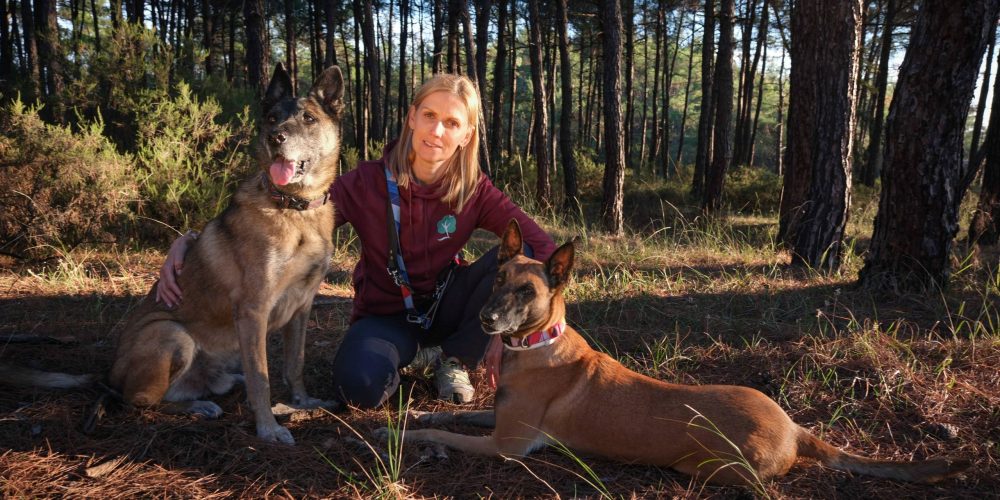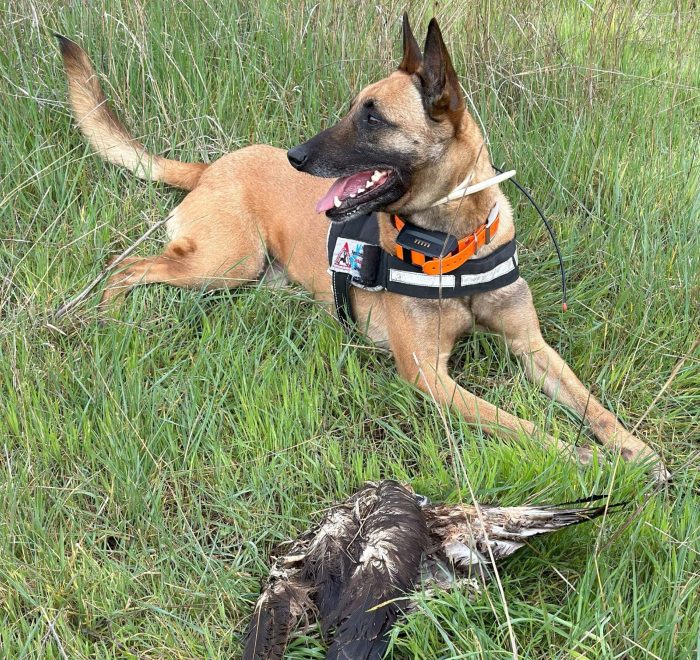
A team for the detection of poisoned bait in Thrace
The abundance of wild animals, especially the larger mammals, in a region like Thrace often leads to human-wildlife conflicts. Humans have always found some form of "natural" defences to use in reducing the damage caused by wild animals but, in recent years, the illegal use of poisoned baits to kill wild animals has become a serious danger.
Although the use of poisoned baits has been banned for almost 30 years, it unfortunately continues to be a very common practice in the countryside. The use of poisoned baits causes mass killings not only of target species, such as foxes, wolves, badgers and dogs, but also of many more endangered species of wildlife, for example the rare species of vultures. Of course, as a non-selective "method" of killing animals, it not only harms wildlife, but also affects working animals, such as dogs used to herd livestock and hunting dogs, thereby causing damage to rural economic activities.
The use of poisoned baits, in addition to the incalculable damage they cause to nature, also forms a direct risk to public health. The chemicals used to make these poisoned baits are highly toxic and are also dangerous to humans.
The Anti-poison Dog Unit can assist at many levels in fighting with incidents of illegal use of poisoned baits. It cleans nature from baits and dead poisoned animals that act as baits as well, as their detection by the trained dog is guaranteed. It breaks the chain of death and prevents mass poisoning in nature when acted upon in time. It discovers important findings to substantiate an incident. It contributes to synergies between the stakeholders involved in the management of an incident. It informs and raises awareness, while gaining invaluable knowledge and experience of its area of action.
The detection skills of a trained dog is not limited to poisoning incidents, but also to other animal killing incidents, such as birds striking wind turbines and power lines, electrocution on power pylons or other electrical infrastructure, and other human or natural causes of death. Moreover, the SPBT anti-poison dog unit can respond to research studies that require systematic and long-term work in nature.
The results from the operation of the anti-poison dog unit can be seen here
A television message against the poisoning of animals
The Society for the Protection of Biodiversity of Thrace (SPBT) created a TV clip with the purpose of raising awareness among the people of Thrace. The aim is for people to contribute to preventing the illegal use of poisoned baits by reporting to the relevant authorities any incidents they notice so that the users of illegal poisoned baits are discouraged from leaving them out in the environment where they are deadly for many animals.
Experienced team members

The SPBT anti-poison Dog Unit has been operating in Thrace continuously since 2014. It consists of the trained handler, Elzbieta Kret and the trained dog, Dalton, while they are accompanied by the now retired but active dog, the veteran Kiko. Their relationship is unique, strong and irreplaceable. A mutual trust is built between them through their daily experiences.
The solution is in all of our hands
Informing and mobilising people plays a key role in dealing with the problem of poisoned baits. In this context, when anyone becomes aware of, or is informed about the illegal use of poisoned baits, it is necessary to contact the authorities of the Forest Service, Police or the National Park Management Agency. Also, the services of the Anti-poison Dog Unit of the SPBT are always available for people to use (contact phone: 2554032210).
